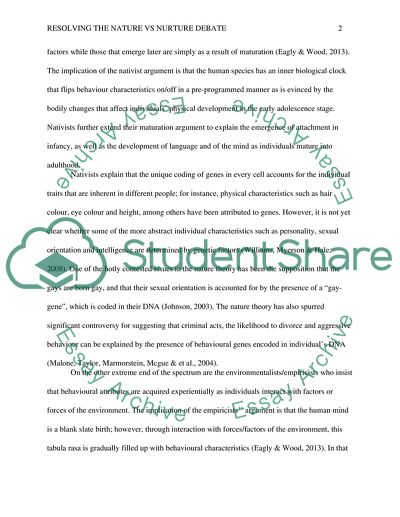Cite this document
(“Resolving the Nature Vs Nurture Debate Essay Example | Topics and Well Written Essays - 1500 words”, n.d.)
Resolving the Nature Vs Nurture Debate Essay Example | Topics and Well Written Essays - 1500 words. Retrieved from https://studentshare.org/psychology/1674853-resolving-the-nature-vs-nurture-debate
Resolving the Nature Vs Nurture Debate Essay Example | Topics and Well Written Essays - 1500 words. Retrieved from https://studentshare.org/psychology/1674853-resolving-the-nature-vs-nurture-debate
(Resolving the Nature Vs Nurture Debate Essay Example | Topics and Well Written Essays - 1500 Words)
Resolving the Nature Vs Nurture Debate Essay Example | Topics and Well Written Essays - 1500 Words. https://studentshare.org/psychology/1674853-resolving-the-nature-vs-nurture-debate.
Resolving the Nature Vs Nurture Debate Essay Example | Topics and Well Written Essays - 1500 Words. https://studentshare.org/psychology/1674853-resolving-the-nature-vs-nurture-debate.
“Resolving the Nature Vs Nurture Debate Essay Example | Topics and Well Written Essays - 1500 Words”, n.d. https://studentshare.org/psychology/1674853-resolving-the-nature-vs-nurture-debate.


